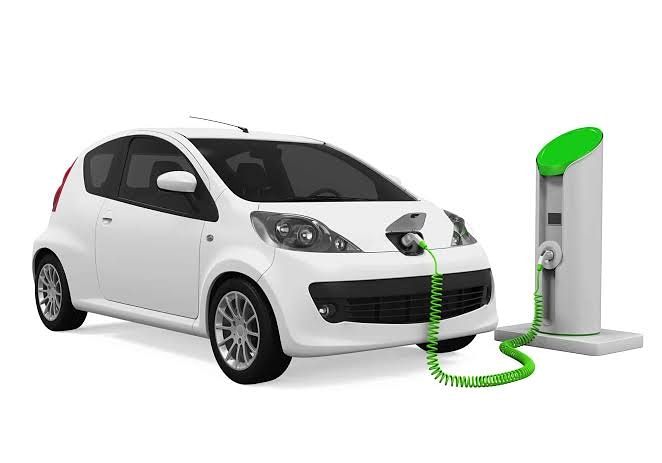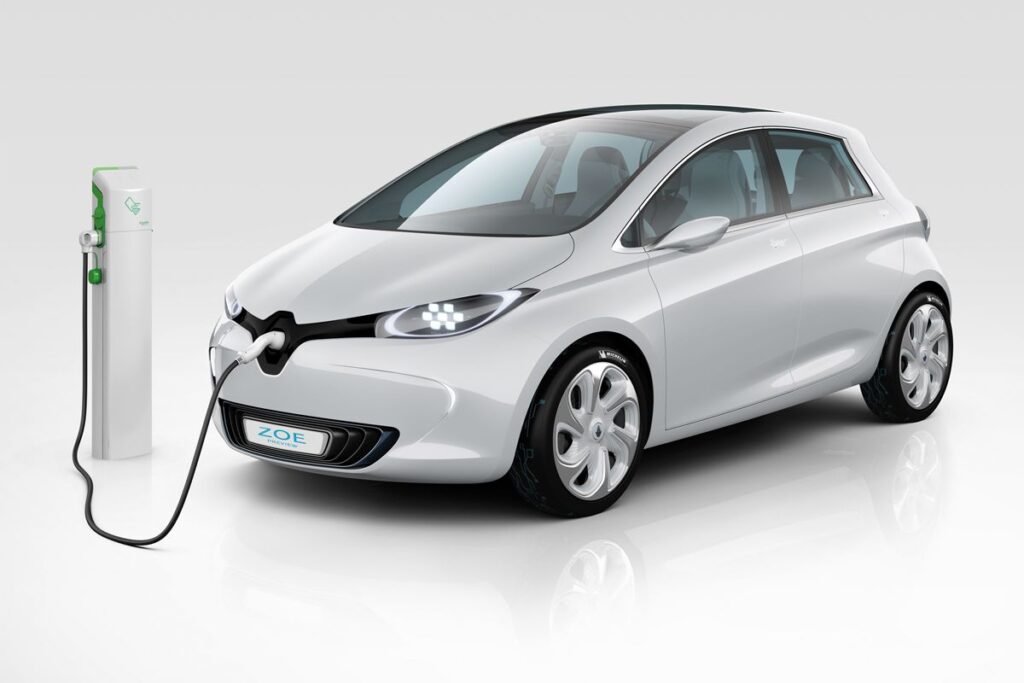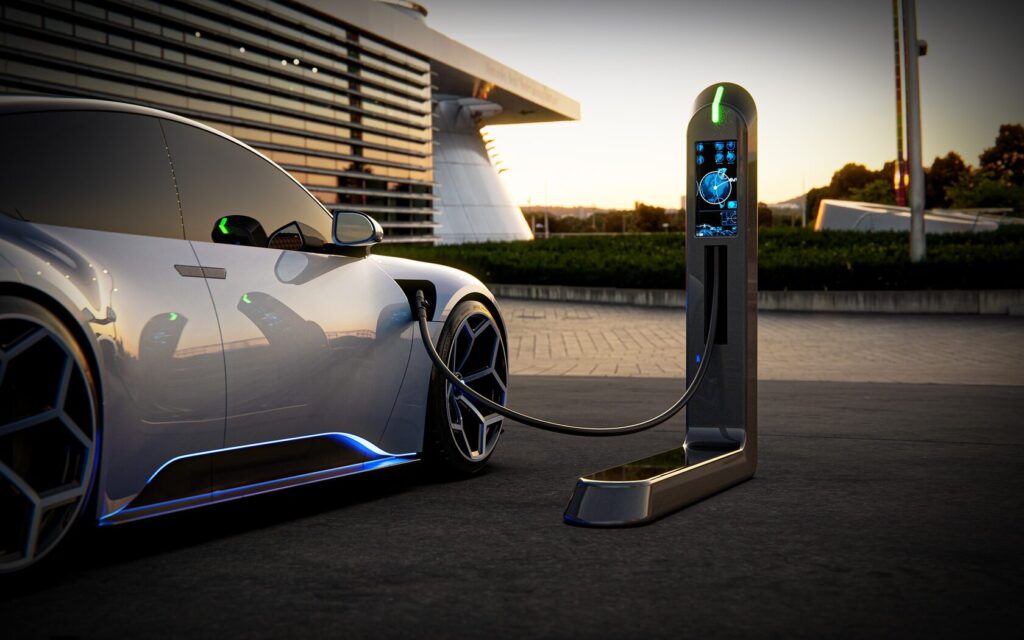The automotive industry in the UK is undergoing a significant transformation, with electric vehicles (EVs) leading the charge. As concerns over climate change and air pollution grow, the demand for electric cars is surging, making them an increasingly popular choice among consumers. The UK government’s push to eliminate petrol and diesel cars by 2030 and the advancement of EV technology have made electric vehicles more accessible and practical than ever. In this comprehensive guide, we will explore everything you need to know about electric cars in the UK, including the benefits, top models, government incentives, charging infrastructure, and much more.
What Are Electric Cars?
Electric cars, often referred to as electric vehicles (EVs), are powered entirely or partially by electricity instead of fossil fuels. They are powered by electric motors that draw energy from onboard batteries, which are recharged using electricity from an external source. There are three primary types of electric cars:
- Battery Electric Vehicles (BEVs): These cars are fully electric, meaning they run entirely on electricity stored in their batteries. Popular models include the Tesla Model 3, Nissan Leaf, and BMW i3.
- Plug-in Hybrid Electric Vehicles (PHEVs): PHEVs have both an electric motor and a petrol or diesel engine. The electric motor can be used for shorter trips, while the internal combustion engine provides longer range. Examples include the Mitsubishi Outlander PHEV and the Toyota Prius Plug-in Hybrid.
- Hybrid Electric Vehicles (HEVs): Unlike PHEVs, HEVs do not need to be plugged in for charging. The electric motor is used in conjunction with the petrol engine to improve fuel efficiency. The Toyota Yaris Hybrid is one of the most well-known HEVs.

Benefits of Electric Cars in the UK
Electric cars offer a range of benefits that make them an attractive option for UK drivers. From environmental advantages to cost savings, electric cars are transforming the way people think about driving.
1. Environmental Benefits
One of the most compelling reasons to switch to an electric car is the positive environmental impact. Electric vehicles produce zero tailpipe emissions, meaning they do not emit harmful pollutants like nitrogen oxide, carbon monoxide, and particulate matter, which contribute to air pollution. Additionally, BEVs have a lower overall carbon footprint, especially when charged with renewable energy sources.
- Reduced Carbon Emissions: Over the lifecycle of the vehicle, EVs typically produce fewer carbon emissions compared to petrol or diesel cars.
- Improved Air Quality: EVs help reduce air pollution, particularly in urban areas where traffic congestion is a major issue.
- Sustainability: EVs use energy-efficient systems and can be powered by renewable energy, contributing to a more sustainable future.
2. Lower Running Costs
Electric cars offer significant savings in running costs compared to traditional vehicles. The cost of electricity to charge an EV is much lower than the cost of petrol or diesel, making them more economical to operate.
- Cheaper Fuel: Charging an EV at home or using public charging stations is significantly cheaper than filling up a petrol or diesel vehicle.
- Lower Maintenance Costs: Electric cars have fewer moving parts than traditional vehicles, meaning they require less maintenance. There’s no need for oil changes, and EVs typically experience less wear and tear.
- Government Incentives: The UK government provides various incentives, including grants and tax breaks, to make EVs more affordable.
3. Tax Benefits
Electric vehicles are eligible for several tax benefits in the UK. The government encourages the use of electric cars by offering reduced road tax, no congestion charges in certain areas, and exemptions from vehicle excise duty (VED) for fully electric cars.
- Exemption from Vehicle Excise Duty (VED): Electric cars are exempt from paying VED, which can amount to hundreds of pounds each year.
- Lower Benefit-in-Kind Tax for Company Cars: If you choose an electric vehicle for a company car, you will pay significantly lower tax rates compared to traditional vehicles.
4. Quieter and Smoother Driving Experience
Electric cars provide a quieter and smoother driving experience than their petrol or diesel counterparts. The absence of a traditional internal combustion engine means that electric vehicles produce less noise, making for a more peaceful and enjoyable ride.
5. Convenient Charging Options
Charging an electric car is more convenient than ever. With a growing network of public charging stations across the UK, along with the option to charge your EV at home, keeping your car powered up is simple and hassle-free.
- Home Charging: Many EV owners install a home charging point, allowing them to charge their vehicles overnight and start each day with a full battery.
- Public Charging Network: The UK has a vast network of public charging points, including fast chargers that can charge a car in under an hour.
- Charging on the Go: Services like BP Pulse, Shell Recharge, and Tesla Supercharger offer fast charging networks across the country.
Government Incentives for Electric Cars in the UK
The UK government is committed to promoting the adoption of electric cars by providing several incentives for both individuals and businesses. These incentives make EVs more affordable and accessible to a broader range of people.
1. Plug-in Car Grant (PiCG)
The UK government offers a Plug-in Car Grant (PiCG) to reduce the upfront cost of purchasing a new electric vehicle. The grant provides up to £1,500 off the cost of an eligible electric car. However, this grant is only available for vehicles that meet specific criteria, including a maximum price cap.
2. Home Charging Grants
To encourage the installation of electric car charging points at home, the government provides a home charging grant of up to £350. This grant helps cover the cost of installing a dedicated charging point in your home, making it more affordable to charge your electric vehicle at home.
3. Exemption from Congestion Charges
Electric cars are exempt from congestion charges in cities like London. This can lead to significant savings, especially for drivers who regularly travel into urban areas with congestion charging zones.
4. Tax Breaks for Electric Vehicles
Electric vehicles are eligible for lower tax rates. For example, electric cars are exempt from the standard vehicle excise duty (road tax), which applies to petrol and diesel vehicles. Additionally, business owners can enjoy lower benefit-in-kind tax rates when using EVs as company cars.
Top Electric Cars in the UK (2025)
The electric car market in the UK is growing rapidly, with several manufacturers offering a wide range of EV models. Here are some of the best electric cars available in the UK in 2025:
1. Tesla Model 3
The Tesla Model 3 is one of the most popular electric cars in the UK, offering impressive range, advanced technology, and high performance. With a range of up to 370 miles on a single charge, the Model 3 is perfect for both city driving and long road trips.
2. Nissan Leaf
The Nissan Leaf is one of the best-selling electric cars in the UK and continues to be a popular choice due to its affordability and practicality. The Leaf offers a range of up to 239 miles, making it a great option for daily commuting and longer journeys.
3. BMW i3
The BMW i3 is a compact and stylish electric car with a unique design. With a range of around 190 miles, it’s ideal for urban drivers who need a small, efficient car for city commuting. The i3 is known for its premium interior and high-tech features.
4. Audi e-tron
The Audi e-tron is a luxury electric SUV that offers both performance and practicality. With a range of up to 285 miles, the e-tron is perfect for those who want a larger vehicle with plenty of space and advanced features.
5. Hyundai Kona Electric
The Hyundai Kona Electric is a versatile and affordable SUV that offers a range of up to 300 miles. With plenty of interior space and a host of safety features, the Kona Electric is a great option for families and those who want a reliable electric SUV.

Charging Electric Cars in the UK
One of the most important factors in the adoption of electric cars is the availability of charging infrastructure. In the UK, the number of public charging points is increasing, with over 40,000 charging stations available across the country. Charging an electric vehicle is easy, whether you’re at home, at work, or on the go.
1. Home Charging
Home charging is the most convenient option for most electric car owners. By installing a dedicated home charging point, you can charge your car overnight and start each day with a full battery. Many energy providers offer special tariffs for electric vehicle owners, allowing you to charge your car at a lower rate during off-peak hours.
2. Public Charging
The UK has an extensive network of public charging stations, including fast chargers that can provide a significant charge in under an hour. Major providers of public charging networks include BP Pulse, Shell Recharge, and Tesla Superchargers. Many of these stations are located in convenient places, such as shopping centres, motorway service stations, and car parks.
3. Ultra-Fast Charging
For drivers on the go, ultra-fast charging stations offer rapid charging times, allowing you to charge your vehicle to 80% in as little as 30 minutes. These fast chargers are ideal for long-distance travel and for drivers who need to charge quickly.

Conclusion
Electric cars in the UK are fast becoming the future of transportation. With the government’s incentives, the environmental benefits, and the growing charging infrastructure, there’s never been a better time to consider making the switch to an electric vehicle. Whether you’re looking to reduce your carbon footprint, save money on fuel and maintenance, or enjoy the latest in automotive technology, electric cars provide a practical, efficient, and sustainable solution.
As the electric car market continues to grow and evolve, we can expect to see even more options, improved technology, and greater affordability in the years ahead. If you’re considering making the switch, now is the perfect time to start exploring the many benefits and options that electric vehicles have to offer in the UK.
